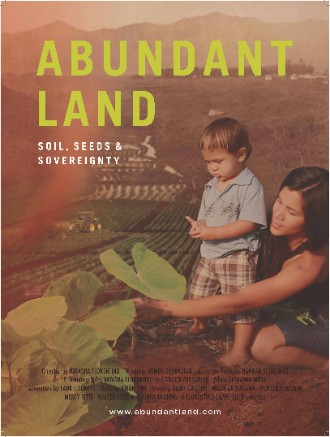
Abundant Land: Soil, Seeds and Sovereignty 2017
Distributed by Third World Newsreel, 545 Eighth Avenue, Suite 550, New York, NY 10018; 212-947-9277
Produced by Armen Zohrabian
Directed by Natasha Florentino
Streaming, 60 mins
College - General Adult
Activism; Agriculture; Native Americans
Date Entered: 07/15/2020
Reviewed by Lauren Stieglitz, Science Liaison Librarian, University of AlbertaAbundant Land is an hour-long documentary about Native Hawaiians on Moloka’i opposing the use of the island to test genetically engineered seeds. Abundant Land explores the intersection between Indigenous sovereignty, traditional knowledge and environmentalism by examining agricultural practices in Hawaii. Abundant Land skillfully contrasts traditional Hawaiian land management with the unsustainable and environmentally harmful commercial farming practices of large biotechnology companies. The documentary also provides valuable context to this issue by explaining the colonization of Hawaii and the redistribution of land from Hawaiian control to white European ownership.
This documentary contains a mixture of interview clips and footage with voice over and presents the stories and expertise of a wide range of individuals. The film contains a lot of handheld camera work, which could be shaky at times. This was distracting during interviews and gave the documentary an amateur feel. However, it did not significantly detract from the otherwise compelling narrative.
Abundant Land is an effective, compelling film that utilizes a straightforward three act structure to provide a well-rounded presentation of the issue. It starts by providing historical context and demonstrating traditional Hawaiian land management. The middle of the film goes in depth on the many issues associated with experimental farming by biotechnology companies. Abundant Land finishes with a hopeful third act that describes the actions Hawaiians have taken to oppose these biotech companies and the movement to adopt sustainable permaculture on the island.
Each section of the film would provide good short clips to use in the classroom, depending on the content. This film would be very valuable in an Indigenous studies class but would also be valuable for environmental studies or agriculture courses. This documentary also has appeal for a general audience interested in Indigenous sovereignty and sustainable agriculture.
Awards:
Audience Choice Award, Eugene Environmental Film Festival